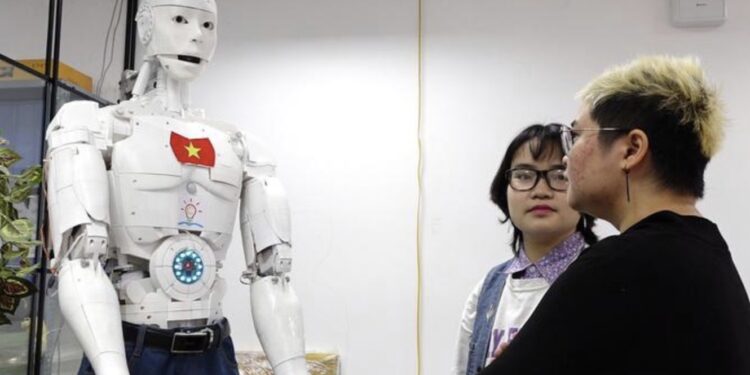As AI rapidly changes the global media landscape, newsrooms in Viet Nam become aware of the good it can do to improve coverage and cut costs. And this technological innovation raises some pressing questions about journalistic integrity and timeless virtues of honesty and ethical reporting.
The Academy of Journalism and Communication (AJC) recently partnered with the Korea International Cooperation Agency (KOICA) to host an international conference in Hanoi, where speakers examined how AI has crossed over and will continue to transform Vietnamese media.
Respondents pointed to the two sides of AI, noting that it has the potential to speed news writing and delivery but also posing the problem of fake news, misinformation and manipulation.
Le Hai Binh, permanent deputy minister of culture, sports and tourism, underscored the need to maintain journalism values in the era of AI, including the truthfulness, integrity, and constructive participation in the society, when AI is increasingly applied to the news industry.
He called for a flexible, interdisciplinary system that he likened to media authority that would include government agencies, media organisations and educational bodies to regulate AI in media.
Focus on establishing an AI legal framework Another gathering focus was the pressing necessity of a well-crafted, legal framework for AI in journalism.
The framework is designed not only to guide the ethical use of AI but also to push the bounds of new technology in newsrooms across Vietnam. Improving the digital readiness of journalists to collaborate with AI tools and preserve journalistic quality was also considered important.
In addition, experts underscored the importance of informative campaigns to educate the public about AI-generated news and foster media literacy. This would allow the public to critically assess sources of information in increasingly changing digital surroundings.
More importantly, for Vietnamese journalism to contribute more efficiently to the achievement of national development goals and communication of policy via the media – ensuring the Party’s guidance is placed at the forefront, it must grasp well AI, Associate Professor Dr. Duong Trung Y, deputy Head of the academy commented.
He also called on the AJC to compile a complete assessment of the impact of AI and strategy measures, including reform of curriculums and AI research programs.
The conference highlighted the importance of Vietnam responsibly seizing on AI’s potential while protecting the integrity and social responsibility of journalism.
As the structure of the media environment changes, the people who write the rules of the game – policymakers, media professionals, and educators – will be increasingly important in defining the future in which AI supports human judgement that provides reliable and valuable news to the public. Investment in AI infrastructure to bridge the access gap between media outlets through out the rest of Vietnam was also stressed as critical.










![Online Scam Cases Continue to Rise Despite Crackdowns on Foreign Fraud Networks [Myanmar] Online Scam Cases Continue to Rise Despite Crackdowns on Foreign Fraud Networks [Myanmar]](https://sumtrix.com/wp-content/uploads/2025/06/30-12-120x86.jpg)




